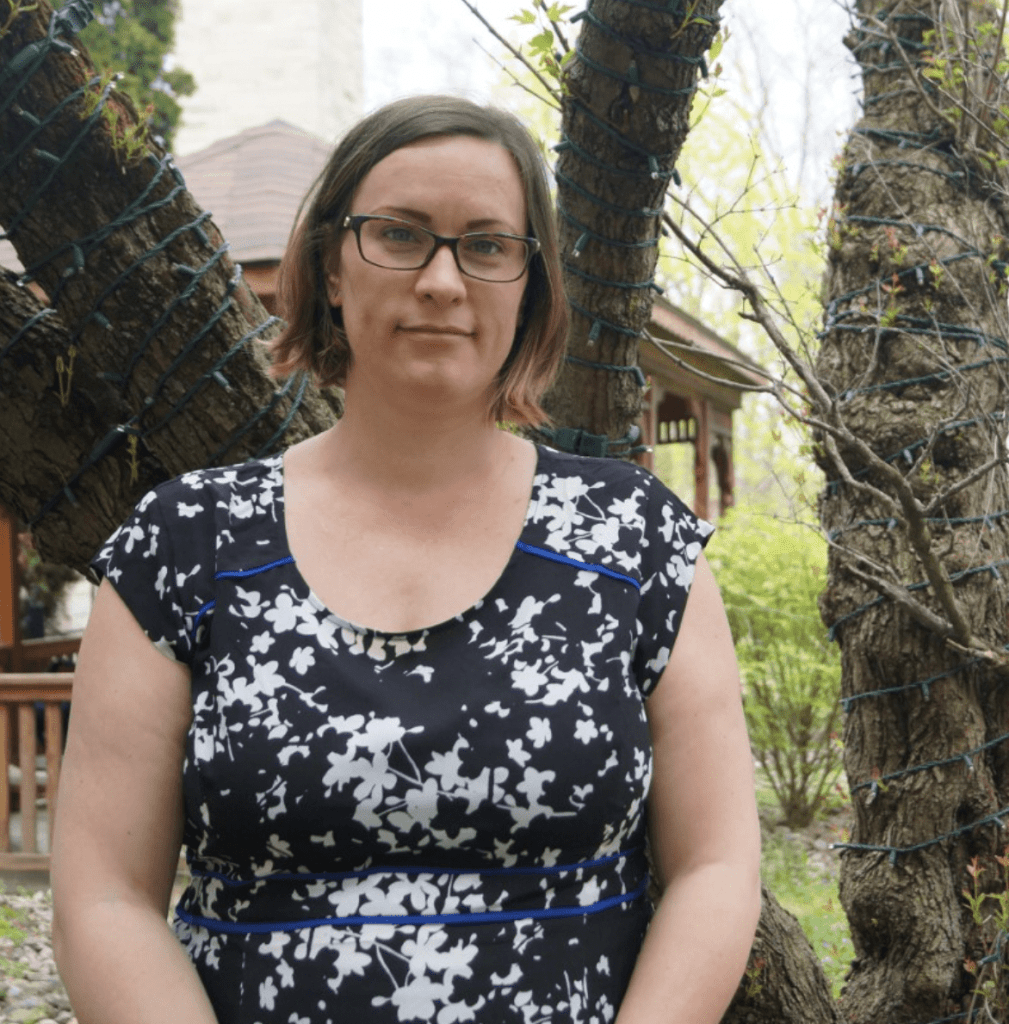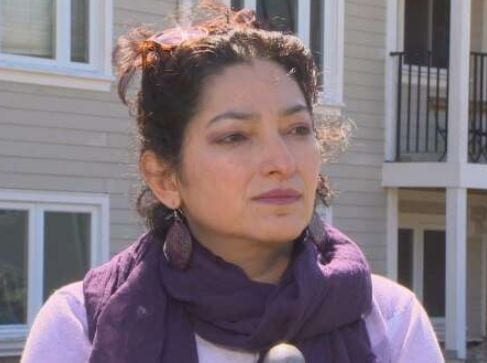Dr. Danielle Bader

Dr. Danielle Bader is a Research Analyst in the Health Analysis Division at Statistics Canada. She earned her PhD in Sociological Criminology and an MA in Criminology and Criminal Justice Policy from the University of Guelph. Her dissertation employed a qualitative research design to understand intimate partner violence (IPV) in non-urban communities in Ontario, specifically women’s feelings of fear and safety as well as the corresponding strategies they employed to feel safer, and the challenges service providers encountered responding to IPV in non-urban communities. In 2019, Danielle was selected as a finalist for the SSHRC Storytellers Competition based on a short three-minute video about her dissertation research. Her Masters thesis was part of a larger community engaged evaluation research study of a first-response sexual assault and domestic violence protocol that was implemented in Guelph-Wellington in 2006; this project was led by Dr. Mavis Morton, and conducted in collaboration with the Guelph-Wellington Action Committee on Sexual Assault and Domestic Violence, and Wellington-Dufferin-Guelph Public Health. In her role in the Health Analysis Division at Statistics Canada, she works on the vulnerable populations research team conducting quantitative analyses in collaboration with others (e.g., government researchers, academics) and disseminates research findings through presentations and peer-reviewed publications on various topics including child maltreatment, women’s health, and access to health care. During her graduate studies, she was employed as a statistical assistant at the Guelph Branch Research Data Centre at Statistics Canada, and she worked as a Senior Research Assistant on the Canadian Domestic Homicide Prevention Initiative with Vulnerable populations as well as other projects at the Centre for Social and Legal Responses to Violence at the University of Guelph.
Dr. Guila Benchimol

Dr. Guila Benchimol is a researcher, educator, consultant, and victim advocate whose work focuses on gender, abuse, and power in faith communities. Guila holds a PhD in Sociological Criminology from the University of Guelph and is also a trained restorative and transformative justice facilitator whose work incorporates the survivor perspective and her Jewish identity. She was one of the key advisors who guided the launch of the SRE Network and continues to serve as their Senior Advisor on Research and Learning while she consults on other projects. Guila has been invited to address Jewish professionals and clergy across Canada and the US, as well as other faith communities, where she educates, trains, and develops and implements policies. Guila also sits on the board of the Survivors Network of those Abused by Priests (SNAP) and is a research associate at the Center for the Study of Social and Legal Responses to Violence where she has worked on projects related to homicides and domestic violence deaths. Her first 10+ year career as a Jewish educator in and outside of the Orthodox Jewish community informed her understanding of the need to address victimization of all kinds.
Claudette Dumont-Smith

Claudette Dumont-Smith has been actively involved in the field of Aboriginal health since 1974. She is a registered nurse and has acted in various executive capacities with the Aboriginal Nurses Association of Canada both as a board member and as its’ first executive director and, more recently, as executive director of the Native Women’s Association of Canada, a position she held until her retirement in 2016. During her 43-year career, Claudette worked as a consultant for various National Aboriginal Organizations as well as for Aboriginal organizations at the regional and local levels. Ms. Dumont-Smith has moderated health conferences across Canada and has collaborated on numerous papers and manuals on Aboriginal health and violence against women and children. Ms. Dumont-Smith served as a member of the Aboriginal circle of the Canadian Panel on Violence Against Women, a blue-ribbon panel initiated by the Government of Canada in 1991. In addition, she served as Associate Commissioner for the National Aboriginal Child Care Commission of the Congress of Aboriginal Peoples, formerly known as the Native Council of Canada and, was appointed as a Commissioner on the Indian Residential School Commission for one year. Ms. Dumont-Smith is also an accomplished writer/researcher whose articles on a wide range of topics have been published by the Health Council of Canada, the Aboriginal Healing Foundation and the Aboriginal Nurses Association of Canada, among others. Ms. Dumont-Smith holds her Master’s degree in Public Administration from Queen’s University, Kingston and a Bachelor of Science in Nursing from the University of Québec, Gatineau. In October 2017, Ms. Dumont-Smith was awarded an Honorary Doctor of Laws (honoris causa) degree from the University of Guelph.
Dr. Jordan Fairbairn

Dr. Jordan Fairbairn is an Associate Professor in the Department of Sociology, King’s University College at Western University, London, Ontario. Her research focuses broadly on gender, feminist criminology, violence, and media, with a focus on intimate femicide and the role of media in gender-based violence prevention. Dr. Fairbairn is a member of the expert panel of the Canadian Femicide Observatory for Justice and Accountability (CFOJA) and was previously Co-Investigator with the Canadian Domestic Homicide Prevention Initiative with Vulnerable Populations (CDHPIVP). Previous and ongoing work explores Canadian news portrayals of femicide, including a current SSHRC Insight Grant Project (2021-2025) titled “Representing intimate femicide in Canada: Understanding media framing of gender-related killings of women and girls, 2010-2024”, in collaboration with Dr. Myrna Dawson (Co-Applicant) and Dr. Yasmin Jiwani (Collaborator). Recent publications have focused on feminist criminology, intersectionality, and intimate partner violence; preventing domestic homicides among vulnerable populations, the role of social media in violence against women prevention, and developing stronger social responses to youth dating violence.
Tina Hotton

Tina Hotton is a Research Associate with the Centre for the Study of Social and Legal Responses to Violence at the University of Guelph. She is also a Chief with the Research Data Centre (RDC) Program, Statistics Canada. Over the past 20 years she has worked both as a researcher with the Canadian Centre for Justice Statistics (CCJS) and an analyst at the McMaster and University of Toronto RDCs. She is the author of many quantitative research articles for Statistics Canada, on topics ranging from women’s experiences with criminal justice system, dating violence, and homicide trends in Canada. Her current research interests focus on the impact of public policy on both the prevalence and criminal justice system response to incidents of intimate partner violence. Hotton holds a Master’s and Bachelor of Arts degree in Sociology from Queen’s University, Kingston.
Dr. Nicole Jeffrey

Dr. Nicole Jeffrey is a Social Sciences and Humanities Research Council (SSHRC) Post-Doctoral Fellow in the Psychology Department at the University of Windsor, hosted by Dr. Charlene Senn. She is currently working on a research project examining young men’s engagement with the social norms that support and disrupt sexual violence against women. She completed her PhD at the University of Guelph, where her doctoral research examined university men’s use of sexual violence against romantic partners and the social norms related to gender, masculinity, heterosexuality, and sexual violence that men and perpetrators used to justify and minimize sexual violence. Dr. Jeffrey has works published in various journals including Violence Against Women and Journal of Aggression, Maltreatment & Trauma, as well as in edited collections. From 2015 to 2018, she worked as a Graduate Research Assistant for Dr. Myrna Dawson for the Canadian Domestic Homicide Prevention Initiative for Vulnerable Populations. More information about Dr. Jeffrey’s work.
Dr. Shiva Nourpanah

Dr. Shiva Nourpanah is a first-generation immigrant from Iran who made the beautiful province of Nova Scotia her home in 2008. She has been working for the Province of Nova Scotia since November 2021. Prior to that, she worked for a community organization, the Transition House Association of Nova Scotia, for three years in the field of Violence Against Women. She also teaches at the Department of Global Development Studies part-time at Saint Mary’s University, Halifax, and is a Research Associate on the CIHR-funded project Violence Against Women Migrants and Refugees: Analyzing Causes and Effective Policy Response” (PI: Dr. Evangelia Tastsoglou). She is a collaborator on the SSHRC-funded Insight Development Grant: “Developing a domestic violence prevention agenda: Learning from domestic violence death reviews” (PI: Dr. Myrna Dawson). She holds a PhD in Social Anthropology from Dalhousie University (2017), and a Social Sciences and Humanities Research Council Post-Doctoral Fellowship at the University of Guelph (2021). She has several publications in the field of refugees and temporary/precarious migrants, and violence against women. She has been a Board member of Halifax Refugee Clinic, a non-profit organization offering pro bono legal and settlement services to refugees in the region, since 2011, as well as a member of the Steering Committee of the NS branch of Canadian Centre for Policy Alternatives, and the Board of Directors of the Muriel McFergusson Centre for Research on Family Violence.
Dr. Amy Peirone

Dr. Amy Peirone was a Social Sciences and Humanities Research Council (SSHRC) Post-Doctoral Fellow hosted by Myrna Dawson and the Centre for the Study of Social and Legal Responses to Violence (CSSLRV) at the University of Guelph. She graduated with a Ph.D. in Sociology from the University of Windsor in October 2019, where her dissertation explored the heterogeneity of experiences of intimate partner violence (IPV) in Sub-Saharan Africa. By using Latent Class Analysis (LCA) with data from the Canadian General Social Survey (GSS), her current research explores the distinct types of IPV experienced by males and females and the multi-level factors related to these different types of IPV. Amy is currently a Post-Doctoral Fellow at the Canadian Institute for Public Safety Research and Treatment at the University of Regina and a part-time Instructor at St. Clair College in the Social Justice and Legal Studies Bachelor of Arts Program. Amy is presently working with Dr. Dawson at the CSSLRV on the SSHRC funded project: Developing a Domestic Violence Prevention Agenda: Learning from Priorities Identified in Recommendations by Domestic Violence Death Reviews. Her other research experience and publications include perceptions of police and court discrimination among minority youth, reporting and disclosure practices among survivors of IPV, help-seeking behaviours among IPV survivors with pets, police response to cases of intimate partner violence in Canada, diversity in experiences of sexual victimization, and the development of a community data trust to help address issues of homelessness, social housing, and affordable housing in Windsor-Essex. Amy is on the Board of Directors at the Canadian Network for the Prevention of Elder Abuse (CNPEA) and is a long-standing member of the Board of Directors at St. Leonard’s House Windsor, a halfway house for Federal offenders.
Dr. Julie Poon

Dr. Julie Poon is a Research Officer at the Professional Institute of the Public Service of Canada where she assists with issues-based portfolios including: domestic violence; human rights, equity, diversity and inclusion; care leave; and scientific integrity. Previously, she assisted the Centre for Research and Education on Violence Against Women and Children at Western University on various gender-based research projects including the Canadian Domestic Homicide Prevention Initiative with Vulnerable Populations project, and the Supporting Survivors of Family Violence in Family Law project. Dr. Poon’s research areas include violence against women and intimate partner violence with a focus on women’s use of force and batterer intervention programs. Dr. Poon completed her PhD in Sociology at the University of Guelph examining how women who were court-mandated to attend Ontario’s Partner Assault Response program interpreted their use of force and whether and how the program addressed their lived realities. She was lead author on a study examining factors increasing the likelihood of sole and dual charging of women in cases of intimate partner violence which was published in Violence Against Women. Most recently, she co-authored a chapter comparing domestic/family violence death reviews at an international level which was published in Domestic Homicides and Death Reviews: An International Perspective.
Gursharan Sandhu

Gursharan Sandhu completed his master’s degree in the Criminology and Criminal Justice Policy program at the University of Guelph and his Juris Doctor degree at Western University Faculty of Law. Gursharan examined narratives used by the Canadian media and the Department of Justice Canada to outline differences and similarities between labelled ‘honour’ killing cases and other domestic homicide cases. His research work has been funded by the Ontario Graduate Scholarship award. Gursharan is a Research Associate at the Centre for the Study of Social and Legal Responses to Violence at the University of Guelph.
Dr. Danielle Sutton

Dr. Danielle Sutton is an analyst with the Canadian Centre for Justice and Community Safety Statistics, a division of Statistics Canada. She holds a PhD in Sociological Criminology and an MA in Criminology and Criminal Justice Policy from the University of Guelph. Her doctoral dissertation examined how accounts of police use of deadly force are constructed in Canadian news media and whether such constructions legitimate the force used. She has works published in peer-reviewed journals as well as in edited collections on the topics of intimate partner violence, homicide, and sociological theory and has presented on similar topics at regional, national, and international academic conferences. Throughout her graduate studies, Dr. Sutton worked on numerous projects at the Centre for the Study of Social and Legal Responses to Violence, and in varying capacities, most notably as the Research Coordinator. Dr. Sutton is currently a research associate at the CSSLRV.
Dr. D. Scharie Tavcer

Dr. D. Scharie Tavcer is an Associate Professor in the Criminal Justice Degree Program at Mount Royal University in Calgary, Alberta where she created the first of its kind field school in criminal justice in Rankin Inlet, Nunavut. In addition to teaching she supervises students in the honours program. Prior to a career in academia, Dr. Tavcer worked for the Correctional Services Canada with violent male offenders in halfway houses, community residential facilities, as a parole officer, and program therapist, in Alberta and British Columbia.
Today, her academic endeavours revolve around gendered violence (see Emond), sexual violence policies and programming at post-secondary institutions (see Routledge), criminal law and its application (in print November 2023 with Oxford University Press), and occupational stress injuries in first responders (see Legacy Place). In 2023 she began writing Gladue Reports for Alberta Justice.
She has a doctorate in Sociology, major in Criminology in 2007 with the Max Planck Institute for Foreign and International Criminal Law and the Albert-Ludwigs Universität both in Freiburg, Germany; a Masters in European Criminology in 2001 from the Katholieke Universiteit Leuven in Leuven, Belgium; a Bachelor of Arts major in Psychology/Sociology in 1997 from the University of Alberta; and a Diploma of Law Enforcement & Security from Grant MacEwan College.
Dr. Büşra Yalçınöz Uçan

Dr. Busra Yalcinoz Ucan is a Marie Curie postdoctoral fellow at the Department of Media and Social Sciences, University of Stavanger, Norway. Her project, SaRe-DiGT, investigates the transformative use of digital technologies in the context of gender-based violence and immigration. More specifically, based on a participatory methodological approach, she examines the patterns and practices of digital technology use by immigrant women and individuals who have experienced gender-based violence and explore the potential of digital technologies as a practical resource for information, communication, support, and mobilization. She was previously a postdoctoral researcher at the Department of Psychology, University of Waterloo, Canada. As a part of this research fellowship supported by Mitacs Accelerate program, she worked on a community partnership project examining the availability, accessibility, and effectiveness of psychological interventions and mental health support programs in the gender-based violence sector in Canada. She completed her PhD in 2019 at the Department of Clinical Psychology, Bogazici University, Turkey. Her research examined women’s safety-seeking and resilience processes in violent relationships, with a focus on the experiences of staying in and leaving the relationships and post-separation well-being.



